What You Need To Know About Ginger Root – A Natural Wonder and 12 Amazing Health Benefits
The Health Benefits of Ginger Root: A Natural Wonder
Overview
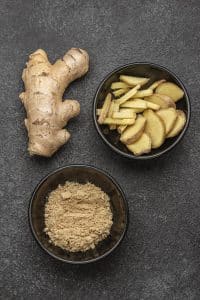
In addition to its culinary uses, ginger root has been used for centuries in traditional medicine systems like Ayurveda and Traditional Chinese Medicine to treat various ailments. Let’s explore some of the key health benefits of ginger root backed by scientific research.
Health benefits of ginger root
- Anti-Inflammatory Properties
Ginger root contains bioactive compounds such as gingerol, shogaol, and paradol, which have potent anti-inflammatory effects. Chronic inflammation is linked to various health issues, including heart disease, cancer, and arthritis. Studies have shown that ginger root can help reduce inflammation and may be effective in managing inflammatory conditions like osteoarthritis and rheumatoid arthritis.
- Digestive Health
Ginger root has long been used as a remedy for digestive issues. It can help alleviate symptoms of indigestion, such as bloating, gas, and stomach discomfort. Ginger root stimulates the production of digestive juices and enzymes, which aids in the digestion process. It may also help reduce nausea and vomiting, particularly in pregnant women and those undergoing chemotherapy.
- Anti-Nausea Effects
Ginger root is well-known for its ability to reduce nausea and vomiting. Studies have shown that ginger can be effective in alleviating nausea related to motion sickness, chemotherapy, and pregnancy. Its anti-nausea effects are thought to be due to its impact on the gastrointestinal system and the central nervous system.
- Immune-Boosting Properties
Ginger root contains compounds that may help strengthen the immune system. It has antioxidant properties that can help protect the body from oxidative stress and damage caused by free radicals. Additionally, ginger root has antimicrobial properties that may help fight infections caused by bacteria and viruses.
- Blood Sugar Regulation
Some studies suggest that ginger root may help regulate blood sugar levels. Research in animals and humans has shown that ginger can improve insulin sensitivity and reduce fasting blood sugar levels, which may be beneficial for people with diabetes.
- Weight Management
Ginger root may also support weight management efforts. Some studies suggest that ginger can increase calorie expenditure and reduce feelings of hunger, which could potentially aid in weight loss. However, more research is needed to fully understand ginger’s role in weight management.
To incorporate ginger root into your diet, you can add fresh ginger to teas, smoothies, stir-fries, or soups. You can also use dried or powdered ginger in cooking and baking. However, it’s essential to note that while ginger root is generally safe for most people, excessive consumption may cause digestive issues in some individuals.
It’s always best to consult with a healthcare professional before using ginger root for medicinal purposes, especially if you have any underlying health conditions or are taking medications.
Additional health benefits
In addition to the well-known benefits of ginger root for digestion, nausea, and inflammation, there are several other potential health benefits that ginger may offer. While more research is needed to fully understand the extent of these benefits, preliminary studies suggest that ginger may have the following additional health benefits:
- Antioxidant properties: Ginger root contains antioxidants that help protect the body from oxidative stress and damage caused by free radicals. These antioxidants may play a role in reducing the risk of chronic diseases such as heart disease, cancer, and neurodegenerative disorders.
- Pain relief: Some studies suggest that ginger root may help reduce pain, particularly in conditions such as osteoarthritis, menstrual pain, and muscle soreness. Ginger’s anti-inflammatory properties are thought to contribute to its pain-relieving effects.
- Heart health: Ginger root may have beneficial effects on heart health by lowering cholesterol levels and improving blood circulation. These effects may help reduce the risk of heart disease and stroke.
- Cancer prevention: Some research suggests that ginger root may have anti-cancer properties. Studies have shown that ginger extract can inhibit the growth and spread of cancer cells, particularly in cancers of the colon, ovaries, and pancreas.
- Brain health: Preliminary studies in animals suggest that ginger root may have neuroprotective effects and could potentially help improve brain function. Further research is needed to understand the impact of ginger on brain health in humans.
- Respiratory health: Ginger root has been used traditionally to treat respiratory conditions such as asthma, bronchitis, and cough. Some studies suggest that ginger may help relax the airway muscles and reduce inflammation, which could benefit respiratory health.
It’s important to note that while these potential health benefits of ginger are promising, more research is needed to confirm these effects and understand the mechanisms behind them. As with any dietary supplement, it’s best to consume ginger root in moderation and consult with a healthcare professional before using it for medicinal purposes, especially if you have any underlying health conditions or are taking medications.
Nutritional profile and dosage
Ginger root is low in calories and rich in nutrients and bioactive compounds. Here is the nutritional profile of ginger per 100 grams, according to the USDA:
- Calories: 80
- Carbohydrates: 17.8 grams
- Sugars: 1.7 grams
- Dietary fiber: 2 grams
- Protein: 1.8 grams
- Fat: 0.8 grams
Ginger root also contains various vitamins and minerals, including vitamin C, vitamin B6, potassium, magnesium, and manganese. Additionally, ginger
As for dosage, there is no standard recommended dosage for ginger root as it can vary depending on the form (fresh, dried, powdered) and the purpose of use (culinary vs. medicinal). However, studies have used doses ranging from 0.5 to 2 grams of ginger extract per day for various health benefits. It’s always best to start with a small amount and gradually increase as needed, and to consult with a healthcare professional for personalized advice.
How to take ginger
Ginger root can be consumed in various forms, each offering its unique benefits. Here are some common ways to take ginger:
- Fresh ginger: Peel the skin and slice or grate the ginger. You can add it to hot water to make ginger tea, or incorporate it into cooking, such as stir-fries, soups, and marinades.
- Ginger tea: Steep fresh ginger slices or grated ginger in hot water for several minutes. You can add honey, lemon, or other herbs and spices to enhance the flavor.
- Powdered ginger root: Use powdered ginger in cooking and baking. It can be added to curry powders, spice blends, and desserts.
- Ginger supplements: Ginger supplements are available in various forms, including capsules, extracts, and tinctures. Follow the instructions on the supplement label or consult with a healthcare professional for proper dosage.
- Ginger oil: Ginger root essential oil can be diluted and applied topically for aromatherapy or massage. It can also be ingested in small amounts, but it’s important to use caution and follow proper dilution guidelines.
- Ginger root juice: Fresh ginger can be juiced using a juicer or blender. You can mix ginger juice with other juices or water for a refreshing drink.
It’s important to note that while ginger root is generally safe for most people when consumed in moderate amounts, excessive consumption may cause digestive issues in some individuals. It’s always best to consult with a healthcare professional before using ginger for medicinal purposes, especially if you have any underlying health conditions or are taking medications.
How to add ginger to your diet
Adding ginger to your diet is a great way to incorporate its health benefits into your daily routine. Ginger root can be used in various forms, including fresh, dried, powdered, or as a juice or oil. Here are some ways to add ginger to your diet:
- Tea: Ginger tea is a popular and soothing way to enjoy ginger. Simply steep fresh ginger slices in hot water for a few minutes, strain, and enjoy. You can also add honey or lemon for added flavor.
- Smoothies: Add a few slices of fresh ginger or a teaspoon of ginger powder to your favorite smoothie recipe for a spicy kick and added health benefits.
- Cooking: Use fresh or powdered ginger in your cooking to add flavor to dishes. Ginger pairs well with meats, vegetables, and stir-fries.
- Baking: Add ground ginger root to your baked goods such as cookies, muffins, and cakes for a warm and spicy flavor.
- Salad dressings: Make a ginger-infused salad dressing by combining fresh ginger, olive oil, vinegar, honey, and mustard. Drizzle over your favorite salad for a zesty flavor.
- Soups and stews: Add sliced or grated ginger to soups, stews, and broths for added flavor and health benefits.
- Marinades: Use ginger in marinades for meats and tofu to add flavor and tenderize the protein.
- Desserts: Use ginger in desserts such as gingerbread, ginger cookies, or ginger-flavored ice cream for a sweet and spicy treat.
It’s important to note that while ginger root is safe for most people when consumed in moderate amounts, excessive consumption may cause digestive issues in some individuals. As always, it’s best to consult with a healthcare professional before making significant changes to your diet, especially if you have any underlying health conditions or are taking medications.
How to pick ginger
When picking ginger root, look for the following qualities to ensure freshness and flavor:
- Firmness: Choose ginger that is firm and not wrinkled or soft. The skin should be taut and smooth.
- Smoothness: Look for ginger with smooth skin, free from blemishes, mold, or soft spots.
- Weight: Select ginger that feels heavy for its size, as this indicates juiciness.
- Aroma: Fresh ginger root should have a strong, spicy aroma. Avoid ginger that smells musty or moldy.
- Sprouts: Avoid ginger with sprouts, as this indicates that it is old and may be less flavorful.
- Size: Choose ginger with thick, plump roots, as they are easier to peel and have more flesh.
- Color: The skin color of ginger can vary from pale yellow to light brown, depending on the variety. Choose ginger with vibrant skin color.
- Organic vs. Conventional: If possible, choose organic ginger to avoid exposure to pesticides.
It’s also a good idea to store ginger properly to maintain its freshness. Store unpeeled ginger in a paper towel in the refrigerator for up to three weeks, or freeze it for longer storage. Peeled ginger can be stored in an airtight container with a little water in the refrigerator for a few days.
How to store ginger
To store ginger root and maintain its freshness, follow these steps:
- Refrigeration: Store unpeeled ginger in the refrigerator. Wrap the ginger in a paper towel and place it in a resealable plastic bag or an airtight container. Stored this way, ginger can last for up to three weeks in the refrigerator.
- Freezing: If you want to store ginger root for a longer period, you can freeze it. Peel and chop the ginger into small pieces or slices. Place the pieces in a resealable plastic bag or an airtight container and store them in the freezer. Frozen ginger can last for several months.
- Avoid moisture: Keep ginger away from moisture to prevent mold growth. Do not store ginger in a plastic bag without wrapping it in a paper towel first.
- Room temperature: If you plan to use ginger within a few days, you can store it at room temperature in a cool, dark place. However, refrigeration is the best method for preserving ginger’s freshness.
- Avoid direct sunlight: Store ginger away from direct sunlight, as exposure to light can cause it to spoil faster.
By storing ginger root properly, you can extend its shelf life and ensure that it remains fresh for longer periods.
Risks and Side Effects
While ginger root is generally considered safe for most people when consumed in moderate amounts, it may cause some side effects and interactions in certain situations. It’s essential to be aware of these risks, especially if you have any underlying health conditions or are taking medications. Here are some potential risks and side effects of ginger:
- Gastrointestinal issues: Consuming too much ginger may cause digestive issues such as heartburn, gas, bloating, and stomach upset in some individuals.
- Bleeding risk: Ginger root may increase the risk of bleeding, especially in people who are taking blood-thinning medications or have bleeding disorders. It’s advisable to consult with a healthcare provider before using ginger root if you fall into these categories.
- Interaction with medications: Ginger root may interact with certain medications, including blood thinners, diabetes medications, and high blood pressure medications. It’s crucial to discuss the use of ginger with your healthcare provider if you are taking any medications.
- Allergic reactions: Some people may be allergic to ginger root, resulting in symptoms such as rash, itching, swelling, or difficulty breathing. If you experience any allergic reactions after consuming ginger, seek medical attention immediately.
- Pregnancy and breastfeeding: While ginger root is generally considered safe for pregnant and breastfeeding women when consumed in moderate amounts, it’s best to consult with a healthcare provider before using ginger as a remedy.
- Interaction with anesthesia: Ginger root may interfere with anesthesia, so it’s advisable to stop using ginger at least two weeks before surgery.
It’s essential to consume ginger in moderation and be aware of any potential interactions or side effects. If you have any concerns or experience any
Can you take too much?
It is possible to consume too much ginger, which may lead to certain side effects. While ginger root is generally safe for most people when consumed in moderate amounts, excessive consumption may cause the following side effects:
- Digestive issues: Consuming large amounts of ginger root may cause gastrointestinal issues such as heartburn, gas, bloating, and stomach upset in some individuals.
- Bleeding risk: Ginger root may increase the risk of bleeding, especially in people who are taking blood-thinning medications or have bleeding disorders.
- Interaction with medications: Ginger root may interact with certain medications, including blood thinners, diabetes medications, and high blood pressure medications. It’s important to consult with a healthcare professional before using ginger if you are taking any medications.
- Allergic reactions: Some people may be allergic to ginger, resulting in symptoms such as rash, itching, swelling, or difficulty breathing.
- Pregnancy and breastfeeding: While ginger root is generally considered safe for pregnant and breastfeeding women when consumed in moderate amounts, excessive consumption may be harmful. It’s best to consult with a healthcare professional before using ginger during pregnancy or breastfeeding.
It’s important to consume ginger root in moderation and be aware of any potential interactions or side effects. If you have any concerns or experience any adverse effects after consuming ginger, consult with a healthcare professional for guidance.
Potential drug interactions
Ginger root is generally considered safe for most people, but it can interact with certain medications. It’s important to be aware of these interactions to avoid any potential complications. Here are some common drug interactions with ginger root:
- Blood-thinning medications: Ginger may increase the risk of bleeding when taken with blood-thinning medications such as warfarin (Coumadin), clopidogrel (Plavix), or aspirin. It’s advisable to consult with a healthcare professional before using ginger if you are taking these medications.
- Diabetes medications: Ginger root may lower blood sugar levels, so it’s important to monitor your blood sugar levels closely if you are taking diabetes medications. Adjustments to your medication dosage may be necessary under the guidance of a healthcare professional.
- High blood pressure medications: Ginger root may lower blood pressure, so it’s important to monitor your blood pressure closely if you are taking medications for high blood pressure. Adjustments to your medication dosage may be necessary under the guidance of a healthcare professional.
- Anticoagulant medications: Ginger root may interact with anticoagulant medications such as heparin, increasing the risk of bleeding. It’s advisable to consult with a healthcare professional before using ginger if you are taking these medications.
- Heart medications: Ginger root may interact with certain heart medications, including calcium channel blockers and beta-blockers. It’s important to consult with a healthcare professional before using ginger if you are taking these medications.
- Other medications: Ginger root may interact with other medications, including certain antidepressants, antacids, and anti-inflammatory medications. It’s advisable to consult with a healthcare professional before using ginger if you are taking these medications.
It’s important to note that the interactions listed above are based on preliminary research, and more studies are needed to fully understand the extent of
After thoughts
Ginger root is a versatile spice with a wide range of health benefits. Its anti-inflammatory, digestive, anti-nausea, immune-boosting, blood sugar-regulating, and potentially weight-managing properties make it a valuable addition to a healthy diet. Incorporating ginger root into your daily routine can be as simple as adding it to teas, smoothies, stir-fries, or soups. However, it’s important to note that while ginger root is generally safe for most people, excessive consumption may cause digestive issues in some individuals. As always, it’s best to consult with a healthcare professional before making significant changes to your diet or lifestyle.
Start incorporating ginger root and natural supplements into your diet today and experience the benefits of a revitalized optimal health.
For natural and healing remedies, products, and supplements to help you live your most optimal healthy life, visit our store here!
Remember: Own Your Health!
If you enjoyed the information presented in this article, Please Share It. Help us reach more people and keep this website going! Thank you!
Note: The information provided in this article is for educational purposes only and should not be considered medical advice. Please consult with a healthcare professional or registered dietitian before making any significant changes to your diet or lifestyle.
References
- Mashhadi, N. S., Ghiasvand, R., Askari, G., Hariri, M., Darvishi, L., & Mofid, M. R. (2013). Anti-oxidative and anti-inflammatory effects of ginger in health and physical activity: review of current evidence. International journal of preventive medicine, 4(Suppl 1), S36.
- Hu, M. L., Rayner, C. K., Wu, K. L., Chuah, S. K., Tai, W. C., Chou, Y. P., … & Lee, C. M. (2011). Effect of ginger on gastric motility and symptoms of functional dyspepsia. World journal of gastroenterology: WJG, 17(1), 105.
- Marx, W., Kiss, N., Isenring, L., & Isenring, E. (2015). The effect of ginger (Zingiber officinale) on platelet aggregation: a systematic literature review. PloS one, 10(10), e0141119.
- Ali, B. H., Blunden, G., Tanira, M. O., & Nemmar, A. (2008). Some phytochemical, pharmacological and toxicological properties of ginger (Zingiber officinale Roscoe): a review of recent research. Food and Chemical Toxicology, 46(2), 409-420.
- Arablou, T., Aryaeian, N., Valizadeh, M., Sharifi, F., Hosseini, A., Djalali, M., & Javanbakht, M. H. (2014). The effect of ginger consumption on glycemic status, lipid profile and some inflammatory markers in patients with type 2 diabetes mellitus. International journal of food sciences and nutrition, 65(4), 515-520.
- Mansour, M. S., Ni, Y. M., Roberts, A. L., Kelleman, M., RoyChoudhury, A., & St-Onge, M. P. (2012). Ginger consumption enhances the thermic effect of food and promotes feelings of satiety without affecting metabolic and hormonal parameters in overweight men: A pilot study. Metabolism, 61(10), 1347-1352.
- White, B. (2007). Ginger: an overview. American family physician, 75(11), 1689-1691.
- Srivastava, K. C., & Mustafa, T. (1992). Ginger (Zingiber officinale) and rheumatic disorders. Medical hypotheses, 39(4), 342-348.
- Thomson, M., Al-Qattan, K. K., Al-Sawan, S. M., Alnaqeeb, M. A., Khan, I., & Ali, M. (2002). The use of ginger (Zingiber officinale Rosc.) as a potential anti-inflammatory and antithrombotic agent. Prostaglandins, leukotrienes and essential fatty acids, 67(6), 475-478.
- Shukla, Y., & Singh, M. (2007). Cancer preventive properties of ginger: a brief review. Food and Chemical Toxicology, 45(5), 683-690.
- USDA FoodData Central. (n.d.). Ginger, raw. Retrieved from https://fdc.nal.usda.gov/fdc-app.html#/food-details/170131/nutrients
- “Ginger: How to Select, Store, and Prepare.” Produce for Better Health Foundation, www.fruitsandveggies.org/fruits-and-veggies/ginger/.
- “Ginger.” National Center for Complementary and Integrative Health, U.S. Department of Health and Human Services, 1 Oct. 2016, www.nccih.nih.gov/health/ginger.
- “Ginger: Side Effects, Dosages, Treatment, Interactions, Warnings.” RxList, www.rxlist.com/ginger/supplements.htm.
- Langner, E., & Greifenberg, S. (1994). Ginger: history and use. Advances in therapy, 11(6), 301-306.
- Srivastava, K. C., & Mustafa, T. (1992). Ginger (Zingiber officinale) and rheumatic disorders. Medical hypotheses, 39(4), 342-348.

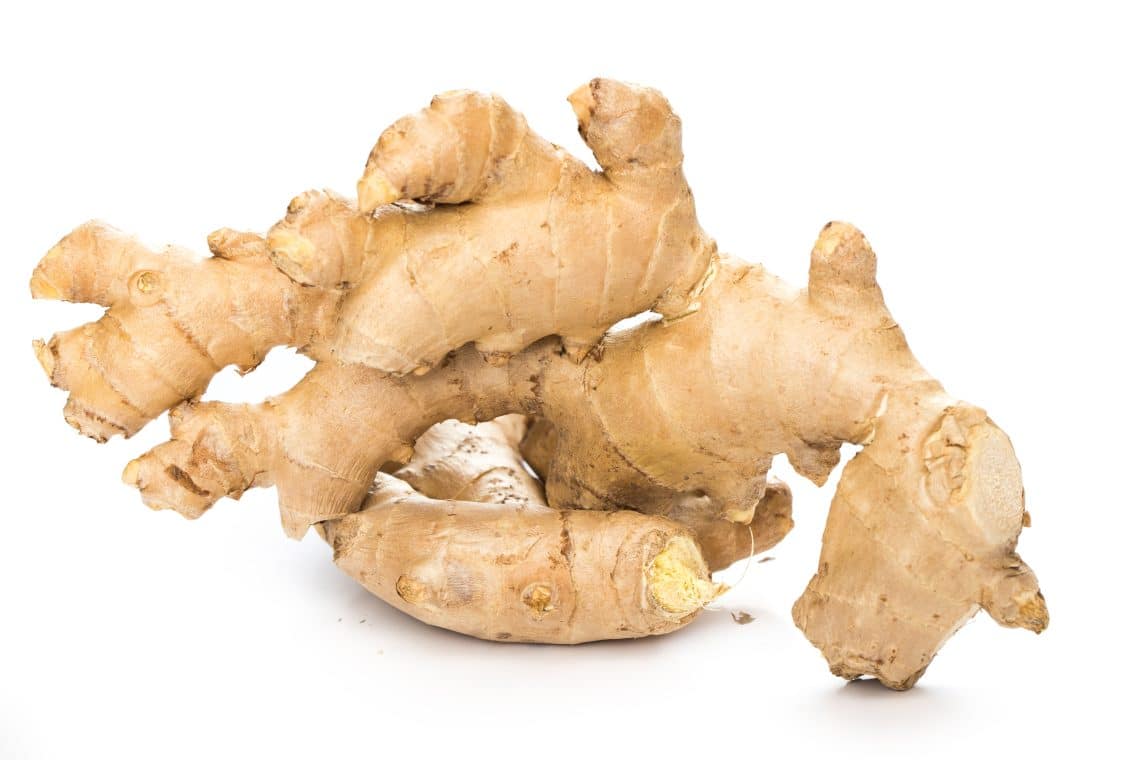






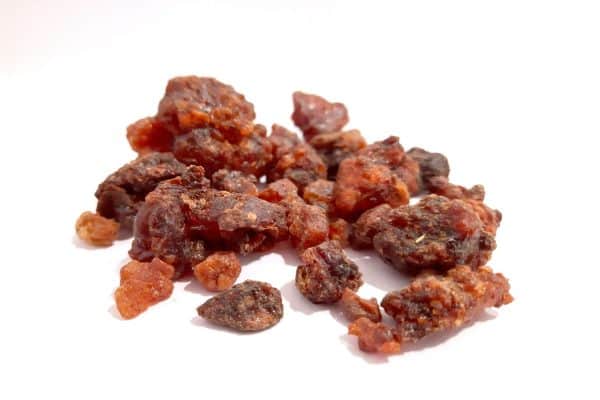




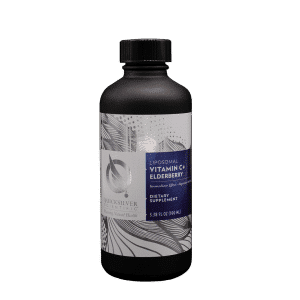


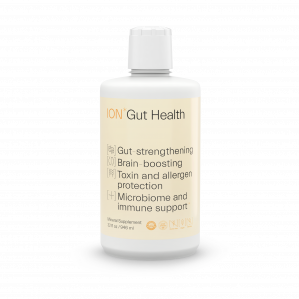











0 Comment